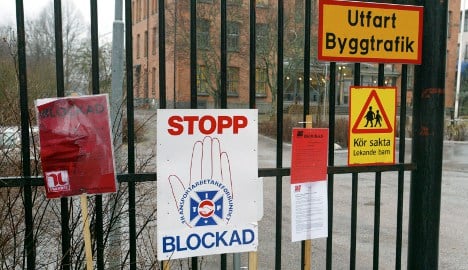Laval specified its damage claim on Tuesday in the Swedish Labour Court.
A subsidiary to the Latvian firm was hit by a union-ordered blockade in November 2004 after negotiations on a collective wage agreement with Byggnads failed.
The company eventually withdrew from the school -renovation project in Vaxholm outside of Stockholm and the contract it had with the municipality was torn up. Laval’s Swedish subsidiary has since gone bankrupt.
In December 2007, the European Court of Justice ruled that the blockade was not allowed and that Byggnads went too far in ordering a blockade of the Vaxholm work site.
The judgment in the so-called Vaxholm wage dumping case was a major blow for Sweden’s unions and for the Swedish government, which had supported Byggnads in the case.
Sweden’s Labour Court made a provisional ruling on the case in March in 2005, finding that the builders union’s blockade didn’t break the rules. But the Labour Court didn’t make a final ruling, choosing instead to turn to the EU court for assistance with the case.
The Latvian government protested against Sweden’s approach to the matter, viewing the blockade as a crime against the EU constitution which guarantees free movement across borders within the EU.



 Please whitelist us to continue reading.
Please whitelist us to continue reading.